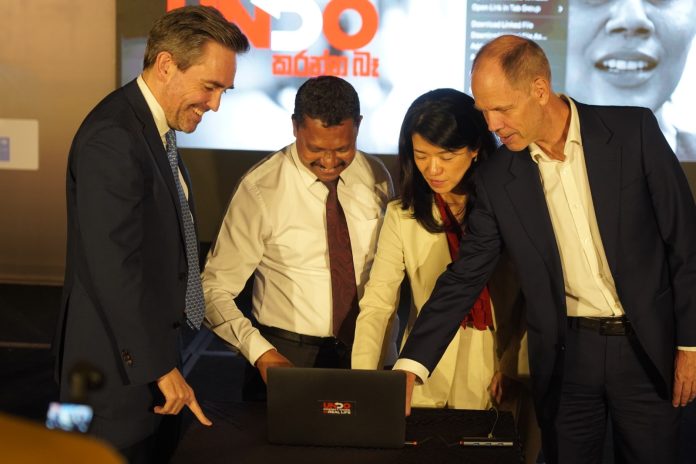A public awareness campaign titled “UNDO Doesn’t Work in Real Life” was launched yesterday to address the growing threat of harmful speech and misinformation while fostering empathy, accountability, and responsible storytelling in Sri Lanka.
This joint campaign is a collaborative initiative by the United Nations in Sri Lanka, together with the Ministry of Health and Mass Media, and is implemented by the United Nations Development Programme (UNDP) and UNICEF in Sri Lanka, with support from the UN Sri Lanka SDG Fund.
Held in Colombo, the launch event saw the participation of Deputy Minister of Health and Mass Media Hansaka Wijemuni; United Nations Resident Coordinator Marc-André Franche; UNDP Sri Lanka Resident Representative Azusa Kubota; and UNICEF Sri Lanka Representative Christian Skoog, alongside senior ministry officials, journalists, civil society actors, and media professionals.
Commenting on the effects of dangerous speech, Hansaka Wijemuni noted, “The power to combat hate speech, misinformation, and disinformation does not lie only with the government, tech companies, and journalists—it also lies with the people. Let us work together to strengthen policies to combat online hate speech and misinformation.”
The centrepiece of the campaign is a series of short videos developed using real-time data from Sri Lanka’s online and offline spaces. These stories reflect the very real consequences of dangerous speech on individuals and communities, particularly women, youth, and marginalised groups.
Marc-André Franche highlighted the UN Secretary-General’s Strategy and Plan of Action on Hate Speech, which provides a clear framework to counter hate while upholding freedom of expression—a balance that is critical in a rapidly polarising global and national media landscape. He stated, “The rise in online harmful speech, particularly during politically sensitive periods, is a disturbing trend we must confront together.”
According to the UN Early Warning Brief (February 2025), 46% of online harmful speech still targets women, despite a 22% month-on-month drop in total harmful content. These trends reinforce the urgent need for public awareness, especially around the gendered impacts of disinformation and hate speech.
Azusa Kubota remarked, “In the digital world, you can press ‘undo’—but in real life, the damage caused by harmful speech is ingrained in someone’s heart and mind, and often irreversible. We hope the media will carry this message forward to enhance public awareness of the unintended and intended consequences of harmful speech, and promote responsible dialogue towards social cohesion.”
Christian Skoog added, “At UNICEF, we have taken several actions to empower communities and future generations. We are equipping young minds with skills to engage in safe internet use and nurture critical thinking skills to recognise, challenge, and reject false and harmful language before it takes root. In addition, UNICEF is working with grassroots organisations and religious leaders to actively prevent and counter hate speech and misinformation in their communities.”
The campaign, which will run on mainstream media and digital platforms, aims to spark national conversation, build digital literacy, and encourage responsible storytelling, with media professionals playing a central role in carrying the message to the public.





